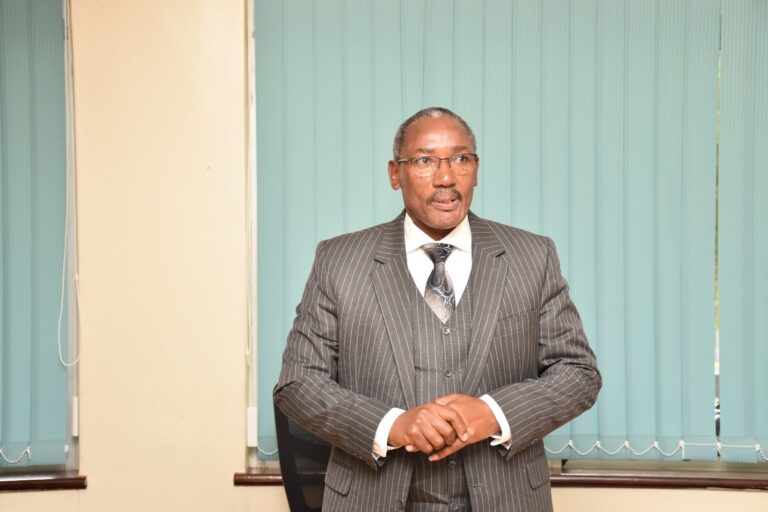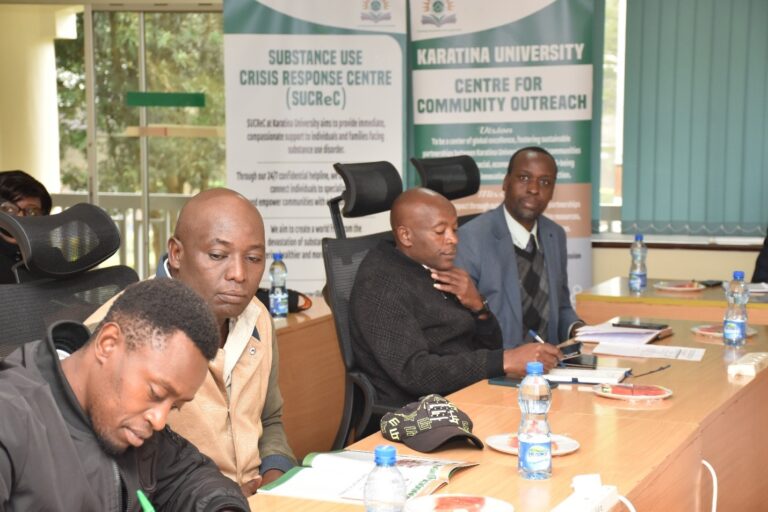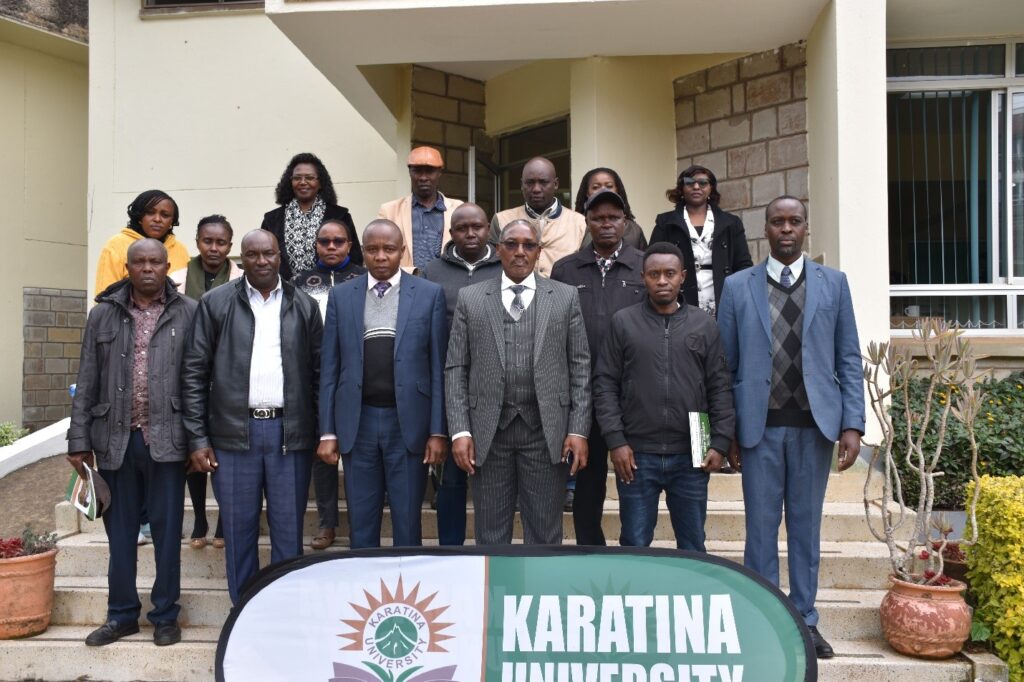On August 21st, 2025, the University Management, together with the Dean of Students Office, held a consultative stakeholder engagement with Matatu Sacco owners ahead of student reporting scheduled for August 25, 2025. The meeting, held at the Senior Common Room, brought together representatives from 2KG Sacco, Magutu Travellers Sacco, and Kagochi Sacco as well as some members of staff. The session aimed to chart the way forward and strengthen partnerships on transport-related issues to ensure safe, efficient, and mutually beneficial solutions for all stakeholders the students and transport operators.
In his remarks, the Vice Chancellor, Prof. Linus M. Gitonga, reiterated the University’s commitment to continuous stakeholder engagement. He called upon them to walk and work together with the university. He further challenged the Sacco owners to reflect on the role they play in supporting the University’s mission and proposed collaboration with the County Government to streamline transport arrangements. This includes establishing a designated stage outside the University gate and consolidating multiple matatu stages in Karatina town into a centralized stage for efficiency. He further urged Sacco owners to maintain high service standards through regular vehicle maintenance and encouraged organizing training sessions for drivers and conductors to enhance professionalism.



